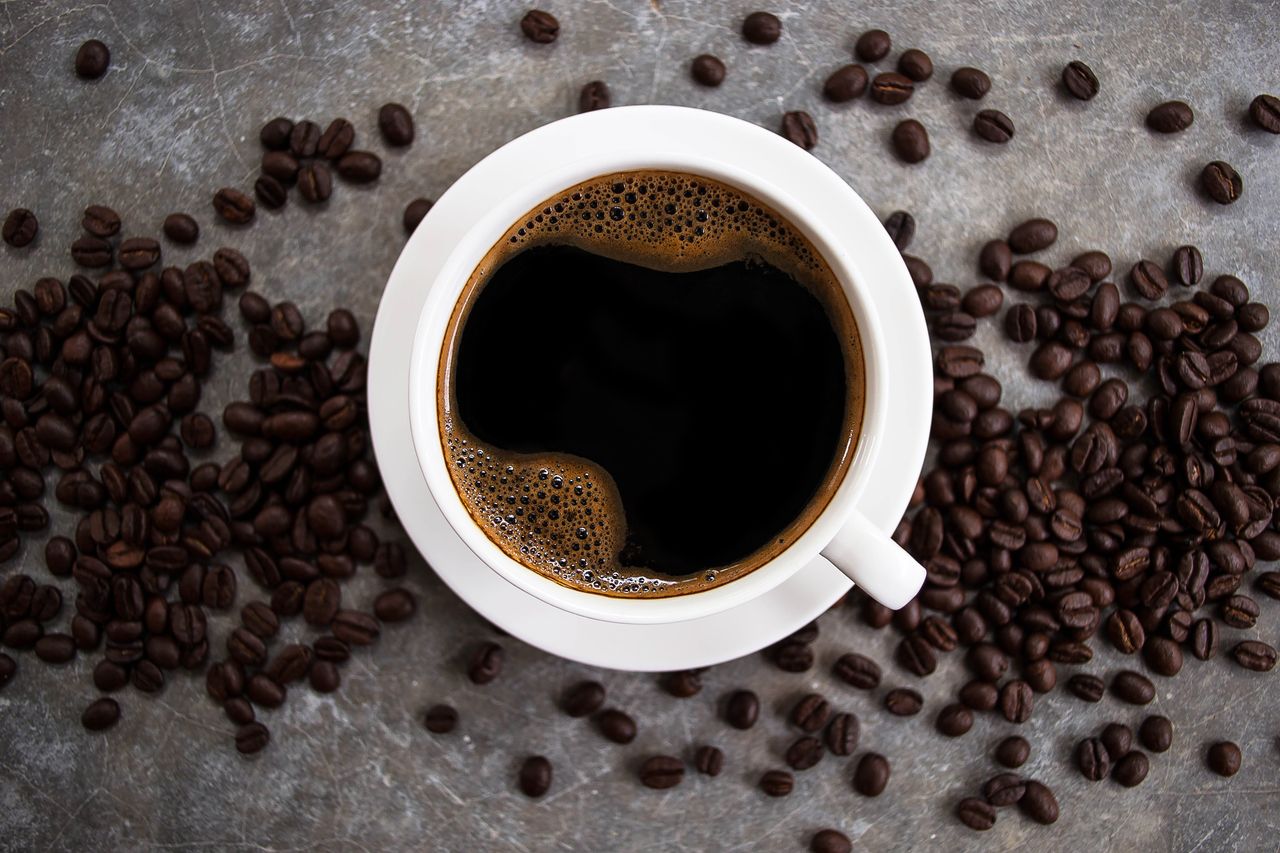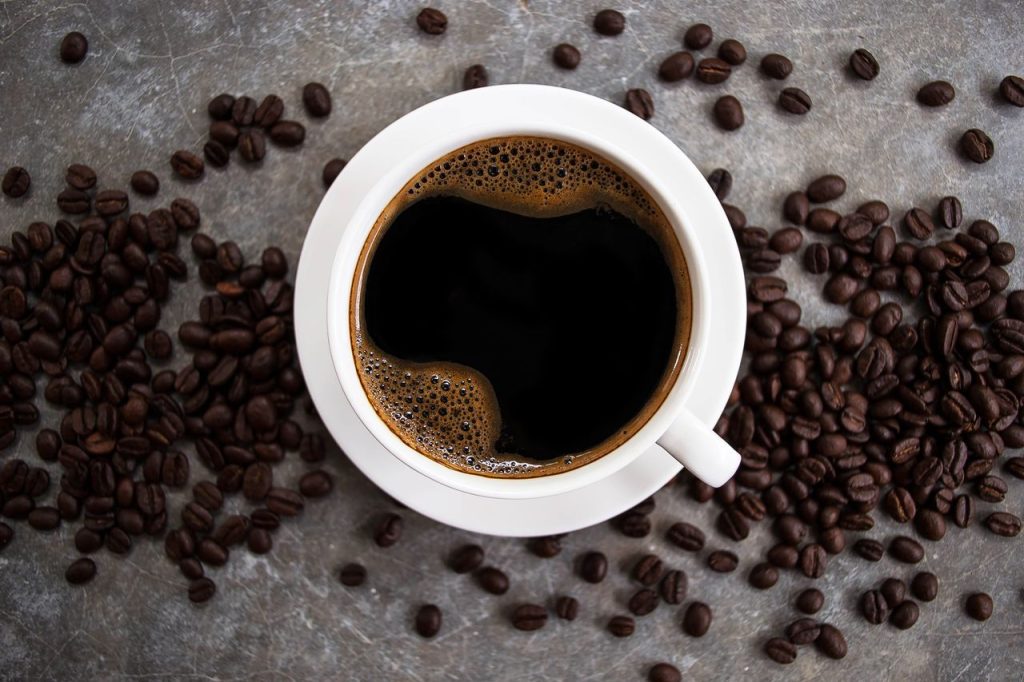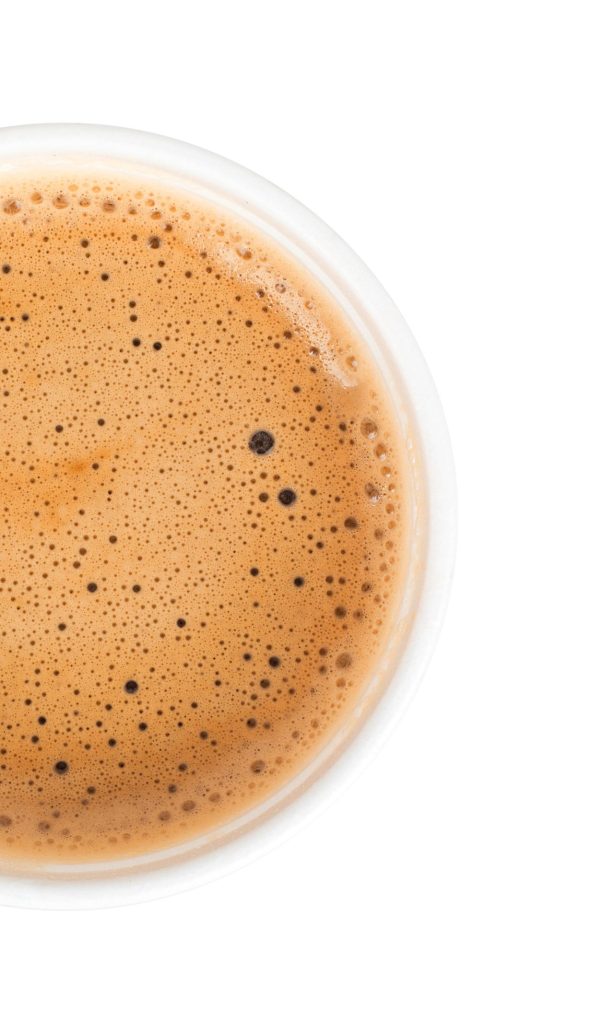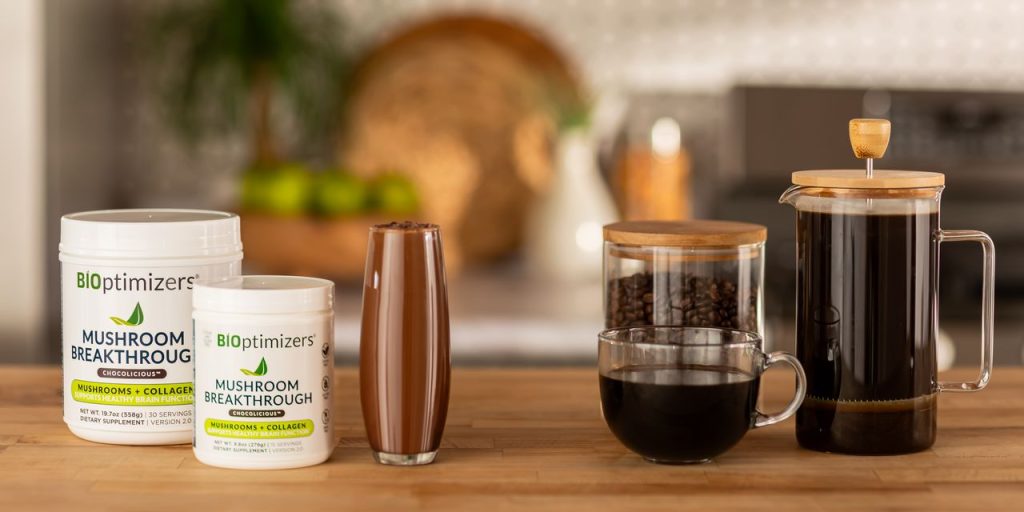
Does Black Coffee Help with Weight Loss?


Does Black Coffee Help with Weight Loss?
Many of us reach for that cup of coffee first thing in the morning, seeking that extra pick-me-up to kickstart the day. It’s a comforting ritual—bold, aromatic, and energizing. But beyond its ability to wake us up, black coffee has gained a reputation as a potential tool for weight loss.
With its low-calorie count and links to metabolism and fat burning, it’s easy to see why some swear by it as part of their fitness routine. But does black coffee actually help with weight loss, or is this just another health myth brewed up over time? Let’s break it down.

How Can Coffee Support Weight Loss?
The rumors are true. Coffee, with its high caffeine content, is thermogenic and can help with weight loss.
A study examined how caffeine might help weight loss by analyzing data from 13 trials involving 606 participants. Caffeine intake ranged from 60 to 4000 mg per day—though most participants consumed around 360 mg daily (about three cups of coffee).
They found that higher caffeine intake was linked to better results: for every time caffeine consumption doubled, people experienced about a:
- 22% reduction in weight
- 17% decrease in BMI
- 28% drop in body fat
The sweet spot for weight and BMI reduction was 200-450 mg of caffeine daily, roughly two to four cups of coffee. Higher doses—over 450 mg per day—worked best for fat loss. That is, however, higher than the recommended daily dose of caffeine, which is typically around 400 mg for most adults. If you’re considering increasing your caffeine intake, it’s a good idea to consult with your doctor, particularly if you have any underlying health conditions or are taking medications.
Another study explored how caffeine consumption over 12 years may affect weight. Researchers followed men and women from two large health studies. The results showed that increasing caffeine intake was tied to less weight gain over the years. Coffee and tea were the main sources of caffeine, and drinking more coffee—especially among women—was linked to smaller weight gains.
These studies show that caffeine—and, by extension, coffee—may have a noticeable impact on weight management. But how does it work? Let’s look closer at how coffee can support weight loss.
Increases Energy Expenditure (Calories Out)
Enjoying coffee as part of a balanced routine may help support your metabolism. Caffeine may increase how many calories you burn, which is a key factor in weight loss. Here’s how it works:
1) Increasing Thermogenesis
Thermogenesis is the process by which your body generates heat. This heat production helps burn more calories, even when you’re not doing anything active. Caffeine stimulates this process, increasing the calories your body burns throughout the day.
2) Blocking Adenosine Receptors
Normally, adenosine promotes relaxation and sleepiness, but when caffeine blocks these receptors, it triggers the release of certain neurotransmitters, including noradrenaline. This is important because noradrenaline stimulates your nervous system to be more active, boosting your metabolism and increasing calorie burn. Noradrenaline also stimulates the release and breakdown of fats.
3) Increasing Sympathetic Nervous System Activity
Caffeine increases sympathetic nervous system activity by stimulating the release of noradrenaline. This part of the nervous system controls the “fight or flight” response, causing the body to burn more energy as it becomes more alert and active.
Together, these effects lead to a higher energy expenditure, which can help support weight loss goals by increasing the number of calories burned even at rest.

Increases Fat Metabolism
Drinking caffeine can help your body break down fat more efficiently, even when you’re not moving much. Here’s how it works: consuming caffeine triggers your body’s fat-burning process by stimulating the sympathetic nervous system. This helps break down fat cells into free fatty acids (FFA), which are then released into your bloodstream and used as energy.
Caffeine also blocks certain receptors in fat cells, making it easier for your body to break down fat and release more FFAs. Plus, caffeine increases cortisol levels, which plays a role in fat metabolism and gives you an energy boost, especially when you’re active.
Another way caffeine supports fat metabolism is by raising levels of a molecule called cyclic adenosine monophosphate (cAMP). Consuming caffeine prevents certain enzymes from breaking down cAMP, allowing its levels to increase. Higher levels of cAMP encourage the fat-burning process by signaling your cells to break down stored fat and release it into the bloodstream, which can be used as energy.
Caffeine + Cold: A Boost for Fat Burning
Exercising in the cold after drinking coffee may give you an extra boost. When you combine caffeine and cold during exercise, your body reacts in some interesting ways.
- First, caffeine helps increase the release of epinephrine, a hormone that makes you feel more energized and ready to push yourself harder.
- The cold adds another benefit by helping your body burn more fat for fuel rather than relying on carbohydrates as much.
This combination means you’re tapping into your fat stores more effectively, which could enhance your workout and potentially support weight loss goals. So, that cup of coffee before a chilly workout might not just wake you up—it could also help you get the most out of your exercise.
Maximizing Fat Loss on Rest Days with Caffeine
A study examining caffeine’s impact on fat metabolism found that it works best when you’re at rest rather than during exercise. It also showed that factors like your fitness level, gender, or how much caffeine you normally drink don’t change how effective caffeine is at burning fat.
So, a moderate dose of caffeine—like a cup or two of coffee—could help support fat loss, even on days when you’re not hitting the gym.
If you’re looking to boost fat metabolism and support your body’s natural fat-burning process, like mitochondrial uncoupling, supplements like kApex® and Berberine Breakthrough can be a great addition.
- kApex® supports mitochondrial health with ingredients like L-carnitine and CoQ10, helping to support fat metabolism and energy production.
- Berberine Breakthrough contains berberine and bitter melon that stimulate mitochondrial uncoupling, which increases calorie expenditure as heat and helps support fat loss and metabolic health.

Suppresses Appetite
Coffee might help curb your appetite, but the effects aren’t the same for everyone. Research tells us that caffeine and polyphenols in coffee may reduce food intake, which may help with weight management. However, the results depend on factors like the type of coffee and individual differences.
In animal studies, Turkish coffee with high phenolic content reduced food intake, suggesting it could help with weight management. For humans, one study found that coffee helped women feel less hungry, but it also led to cravings for sweet foods, complicating the appetite-suppressing effect.
A review of studies found that drinking coffee 3-4.5 hours before a meal doesn’t seem to affect how much you eat. But if you have caffeine just 30 minutes to 4 hours before eating, it could help you eat less. Also, how you react to coffee or caffeine might depend on your genetics, like whether you have a certain gene or taste preference for bitterness, but researchers haven’t studied these factors much yet.
In short, coffee might help with appetite control, but the effects vary. The best way to find out is to listen to your body and determine how it responds to coffee in different situations. Experimenting with timing, type of coffee, and other factors can help you understand whether it works for you and when it’s most effective in managing hunger.

Enhances Your Physical Performance
When it comes to boosting your workout, coffee might be just the extra push you need.
A recent meta-analysis of 21 studies explored how caffeine affects endurance running performance. The trials, which included 254 participants, tested caffeine doses ranging from 3 to 9 mg/kg (1.36 to 4.09 mg/lb). For a 150-pound person, that’s between 204 and 612 mg of caffeine.
The findings were clear: caffeine positively impacted running performance, especially in endurance events. Key results include:
- Time to exhaustion improved for both recreational and trained runners.
- Caffeine reduced the time to complete endurance running trials compared to a placebo.
In short, caffeine helped runners push further and finish faster. But the benefits aren’t limited to running.
Caffeine can enhance performance across a variety of exercise tasks. A review of 21 meta-analyses found it significantly boosts measures like:
- Mean and peak power
- Vertical jump height
- Speed
What’s particularly interesting is that caffeine seems to have a greater effect on aerobic activities—like running, cycling, and swimming—than on anaerobic tasks. Caffeine improves stamina and reduces perceived effort by boosting adrenaline and helping the body use fat for fuel, allowing for longer, higher-intensity performance.
While caffeine can still enhance anaerobic activities, like sprinting or weightlifting, the impact is generally less noticeable, as these rely on short bursts of energy. It’s also worth noting that most studies have focused on men, so more research is needed to understand how caffeine affects women and older adults.
What Is the Best Way to Drink Coffee for Weight Loss?
When it comes to using coffee for weight loss, how you drink it matters. While coffee itself can offer benefits, how you drink it plays a big role in how effective it is in supporting your weight management goals.
Black Coffee Is the Best Way to Go
When using coffee as part of a weight loss strategy, black coffee is the way to go. Without added sugars, milk, or cream, black coffee is virtually calorie-free, making it the ideal choice for anyone looking to manage their weight. It allows you to enjoy the benefits of caffeine without the extra calories that can quickly add up in flavored coffee drinks.
Remember, it’s still all about keeping your calories in lower than your calories out, and they can add up quickly!
Choose Dark Roast Over Light

Dark roast coffee may be a better choice for weight management. In a study comparing dark and light roasts, participants drank 500 mL of each daily over 12 weeks.
- Dark roast coffee, rich in N-methylpyridinium (NMP), led to an average 5.7 lbs (2.6 kg) weight loss.
- Light roast coffee, which is higher in chlorogenic acids (CGA), caused very slight weight gain (0.2±0.5 kg).
- Participants also consumed significantly fewer calories while drinking dark roast coffee.
The researchers suggested that this lower energy intake might have contributed to the weight loss, but they couldn’t determine whether NMP or other factors were responsible. Further studies are needed to confirm whether dark roast coffee directly influences weight loss and to identify the specific compounds involved.
NMP, found in higher concentrations in dark roast coffee, may still offer unique benefits. Beyond acting as an antioxidant, it strengthens the body’s defenses by increasing other antioxidants like tocopherol and glutathione, which help manage oxidative stress and support metabolic health. NMP also activates gene pathways that enhance cellular protection, potentially contributing to better energy regulation and fat metabolism.
In contrast, CGA-rich light roast coffee still provides a potent source of antioxidants but may not provide the same support for weight management.
Should You Add Anything to Your Coffee?
While black coffee is a great choice for weight management, you might still want to enhance your cup with something that adds health benefits without the extra calories. Many coffee drinks are loaded with sugars, syrups, or creamers, which can quickly add hundreds of calories and undermine your goals. So, what’s the best way to boost your coffee without all the added sugar?
Mushroom Breakthrough is a great option. With just 40-60 calories per serving, it provides a unique blend of medicinal mushrooms, like Lion’s Mane, Reishi, and Cordyceps. These mushrooms support mental clarity, healthy stress response, and immune function.
Unlike coffee, caffeine, or other stimulants that can cause jitters or crashes—especially for those who are genetically sensitive—Mushroom Breakthrough works by providing nutrients, antioxidants, and adaptogens to support sustained energy and focus. It also contains collagen, which is great for recovery.
Adding Mushroom Breakthrough to your coffee lets you stay on track with your health and wellness goals—no sugar, no cream, just benefits.

Potential Downsides of Too Much Caffeine
While coffee has its benefits, it’s important not to overdo it. Too much caffeine can come with side effects, especially if you’re sensitive to it or consume it in large amounts. The half-life of caffeine is about 5 hours on average, meaning even 10 hours after consumption, some caffeine can still be in your system.
Some people may struggle to sleep if they have coffee too late in the day or even experience jitters at the lowest doses. This is especially true if you are a genetically slow caffeine metabolizer. It’s generally recommended not to exceed 400 mg of caffeine daily—about four cups of brewed coffee. Here are some downsides to watch out for and make adjustments as needed:
Increased Stress and Anxiety
Caffeine is a stimulant, and while it can boost energy levels and mental focus, it can also increase the production of stress hormones like cortisol. This can lead to heightened feelings of stress or restlessness, particularly in individuals who are more sensitive to caffeine or who already have high stress levels. If you’re feeling jittery or anxious after your cup of coffee, it might be worth scaling back or switching to a lower-caffeine option.
Sleep Disruptions
Caffeine has a half-life of around 4 to 6 hours, meaning it can stay in your system for a while, affecting your sleep even if you drink it earlier in the day. Consuming coffee too late in the afternoon or evening can interfere with your ability to fall asleep and the quality of your rest, which is crucial for weight management and overall health. Some people fall asleep just fine but may wake up not feeling rested, experience more awakenings at night, or just have less deep sleep, as detected by wearables like Oura.
Digestive Issues
For some, coffee—especially in large amounts—can cause digestive discomfort, such as acid reflux or stomach irritation. If you experience these issues, reducing your intake or switching to a gentler brew, like cold brew or dark roast, may help. Also, adding some food, especially protein-containing foods, can also help.
Learn more about drinking coffee on an empty stomach.
When Is The Best Time To Drink Coffee?

If you’re looking to use coffee to help with weight loss, the time you drink it might matter. A study found that the afternoon is the best time to drink coffee to burn fat.
In this study, participants drank caffeine either in the morning or afternoon before exercising. The results showed that caffeine helped them burn more fat in the afternoon, increasing fat burning by nearly 30%. In the morning, the boost was smaller, around 10%.
So, to get the most out of coffee for fat burning, having it in the afternoon before a workout may be a good idea. But don’t change your workout routine based on caffeine consumption. If it works best for you and your schedule to fit in a morning workout, do that.
Remember, however, that everyone’s body reacts differently, and drinking too much caffeine late in the day could affect your sleep. Ideally, you should stop drinking caffeine eight hours before bedtime. Not getting enough quality sleep could undermine your weight loss goals.
Conclusion
Coffee can be a powerful ally in supporting your weight management goals. However, it’s important to remember that coffee alone won’t work wonders. Combine it with a balanced diet and regular exercise for the best results.
If you’re looking for an extra boost alongside your coffee routine, consider incorporating kApex® for enhanced fat metabolism and energy production, or Berberine Breakthrough to support already healthy blood sugar levels and metabolic health. Additionally, Mushroom Breakthrough can be a great addition to an energizing cup that also supports mental clarity and immune function.
By being mindful of your coffee consumption and complementing it with the right supplements, you can maximize your weight loss efforts while supporting your overall well-being.
References
- Tabrizi R, Saneei P, Lankarani KB, et al. The effects of caffeine intake on weight loss: a systematic review and dos-response meta-analysis of randomized controlled trials. Crit Rev Food Sci Nutr. 2018;59(16):2688-2696. doi:10.1080/10408398.2018.1507996
- Lopez-Garcia E, van Dam RM, Rajpathak S, Willett WC, Manson JE, Hu FB. Changes in caffeine intake and long-term weight change in men and women. Am J Clin Nutr. 2006;83(3):674-680. doi:10.1093/ajcn.83.3.674
- Quisth V, Enoksson S, Blaak E, Hagström-Toft E, Arner P, Bolinder J. Major differences in noradrenaline action on lipolysis and blood flow rates in skeletal muscle and adipose tissue in vivo. Diabetologia. 2005;48(5):946-953. doi:10.1007/s00125-005-1708-4
- Kim TW, Shin YO, Lee JB, Min YK, Yang HM. Effect of caffeine on the metabolic responses of lipolysis and activated sweat gland density in human during physical activity. Food Sci Biotechnol. 2010;19(4):1077-1081. doi:10.1007/s10068-010-0151-6
- Anderson DE, Hickey MS. Effects of caffeine on the metabolic and catecholamine responses to exercise in 5 and 28 degrees C. Med Sci Sports Exerc. 1994;26(4):453-458.
- Conger SA, Tuthill LM, Millard-Stafford ML. Does caffeine increase fat metabolism? A systematic review and meta-analysis. Int J Sport Nutr Exerc Metab. 2023;33(2):112-120. doi:10.1123/ijsnem.2022-0131
- Macit MS, Köksal E. Is coffee a potential appetite suppressant? Metabolism. 2022;128(154990):154990. doi:10.1016/j.metabol.2021.154990
- Magaña-de la Vega L, Martínez-López E, Sanchez-Murguia T, et al. Effect of coffee intake on appetite parameters in woman with overweight or obesity: A pilot crossover randomized trial. Endocrinol Diabetes Nutr. 2024;71(6):236-245. doi:10.1016/j.endinu.2024.03.005
- Schubert MM, Irwin C, Seay RF, Clarke HE, Allegro D, Desbrow B. Caffeine, coffee, and appetite control: a review. Int J Food Sci Nutr. 2017;68(8):901-912. doi:10.1080/09637486.2017.1320537
- Wang Z, Qiu B, Gao J, Del Coso J. Effects of caffeine intake on endurance running performance and time to exhaustion: A systematic review and meta-analysis. Nutrients. 2022;15(1):148. doi:10.3390/nu15010148
- Grgic J, Grgic I, Pickering C, Schoenfeld BJ, Bishop DJ, Pedisic Z. Wake up and smell the coffee: caffeine supplementation and exercise performance-an umbrella review of 21 published meta-analyses. Br J Sports Med. 2019;54(11):681-688. doi:10.1136/bjsports-2018-100278
- Kotyczka C, Boettler U, Lang R, et al. Dark roast coffee is more effective than light roast coffee in reducing body weight, and in restoring red blood cell vitamin E and glutathione concentrations in healthy volunteers. Mol Nutr Food Res. 2011;55(10):1582-1586. doi:10.1002/mnfr.201100248
- Institute of Medicine (US) Committee on Military Nutrition Research. Pharmacology of Caffeine. National Academies Press; 2001.
- Reddy VS, Shiva S, Manikantan S, Ramakrishna S. Pharmacology of caffeine and its effects on the human body. Eur J Med Chem Rep. 2024;10(100138):100138. doi:10.1016/j.ejmcr.2024.100138
- Ramírez-Maldonado M, Jurado-Fasoli L, del Coso J, R. Ruiz J, Amaro-Gahete FJ. Caffeine increases maximal fat oxidation during a graded exercise test: is there a diurnal variation? J Int Soc Sports Nutr. 2021;18(1). doi:10.1186/s12970-020-00400-6